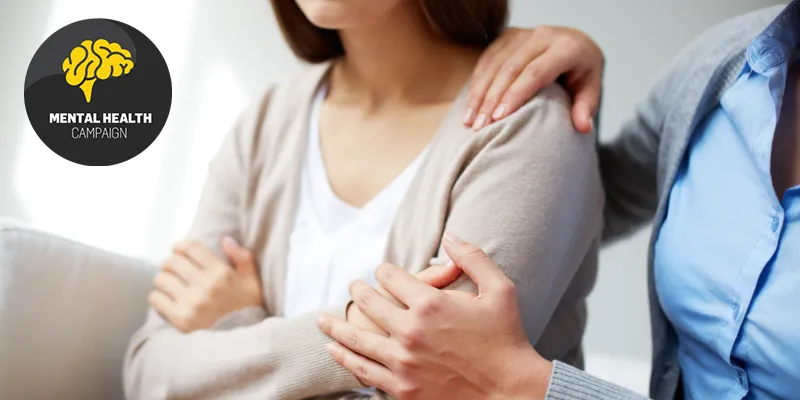Anxiety, mental health, depression — you don’t need to relate to the problem to accept that it exists
What is anxiety?
If you type in the word ‘anxiety’ into Google’s search bar, it will pull up over 160 million hits. A lot of medical professionals explain anxiety as extreme feelings of nervousness that hamper day-to-day activities.
Mental health is something people have only recently started talking about, like gluten free bread or chia seed pudding, but it is just as important as physical health. It is easier to treat symptoms that can be seen and diagnosed instantly than to diagnose and treat internal ailment.

A lot of industry veterans state that excessive and regular anxiety can lead to depression and physical symptoms such as nausea, dizziness, fatigue, and migraines, among other things. So maybe mental health is an extension of physical health, or the two are sides of the same coin — can’t have one without the other.
Anxiety comes in all shapes and sizes
In an age where most people feed off strangers’ feeds and consume information from a screen, it is easy to get worked up over things that are probably as real as the sugar in a zero-calorie dessert.
Social media anxiety, generalised anxiety disorder, obsessive-compulsive disorder, phobias, social anxiety, post-traumatic stress disorder, and in some cases experiencing anxiety regularly can even lead to depression.
Because every mind is different, the symptoms and reasons for having anxiety are varied as well. Whether it is the fear of getting on a plane because of rampant global terror attacks, anxiousness to get a job, perform well in an exam, or even just feeling like you have to go out and party on a Saturday night when you really just want to stay in, eat some cake, and play monopoly, many things can trigger feelings of anxiousness and nervousness in a person.
Anxiety in India and around the world
In recent times, beautiful, successful people like Selena Gomez, Zayn Malik, and even Deepika Padukone have gone on record to talk about mental health, depression, anxiety, and how it can bring even highly sought-after individuals like themselves down.
Even if you see this issue as a fad and not a real problem, think about the number of people that we compete with on a daily basis and how that weighs down on each of us.
Compared to heart disease or climate change, anxiety-based problems may seem unimportant, but chances are multiple people in our lives experience anxiety-related problems on a regular basis and this in turn affects us in a way that we may not even notice.

According to a Times of India article, one out of every four Indians suffers from anxiety[4]; by that estimate, in a country of 1.2 billion people, over 300 million individuals deal with this on a regular basis.
In another article by the New York Times, it was found that the word ‘anxiety’ was one of the top searches on Google in 2016 in the United States[5]. Globally, 1 in 13 people suffer from anxiety. [6]
Anxiety affects more women than men
Most women from the age of puberty until 50 are more likely to experience anxiety than men. It could be because the ‘flight or flight’ response is higher in women than men and the expectations from women in society are different than those from men.
From an evolutionary viewpoint, women have always had a more protective role to play as compared with men, who have traditionally been providers while women nurture. As the world steps out of a regressive past into a more progressive future, the roles for each gender are becoming less defined. More women are now fulfilling dual roles to protect as well as provide, and probably the expectation to do both competently triggers anxiety.
Additionally, there is a difference in brain chemistry between men and women and increased anxiety can be linked to stress factors caused by pregnancy, hormones, and menopause.[7]
Anxiety is not a form of weakness, and the fact that women are twice as likely to experience it does not signify helplessness. Positive mental health is just as important for an individual as it is to the people around them, because people are inherently social and in general, women play a significant role in being binding factors not only in their families but also in their communities and in the workplace.
Seeking help through medical professionals, family, friends, lovers, or even self-help are some of the many ways to combat and cope with the issue. It is vital that issues like mental health and anxiety-triggered stress, depression, and other problems be discussed because the first step to treating any problem is to accept it exists.
(Disclaimer: The views and opinions expressed in this article are those of the author and do not necessarily reflect the views of YourStory.)







